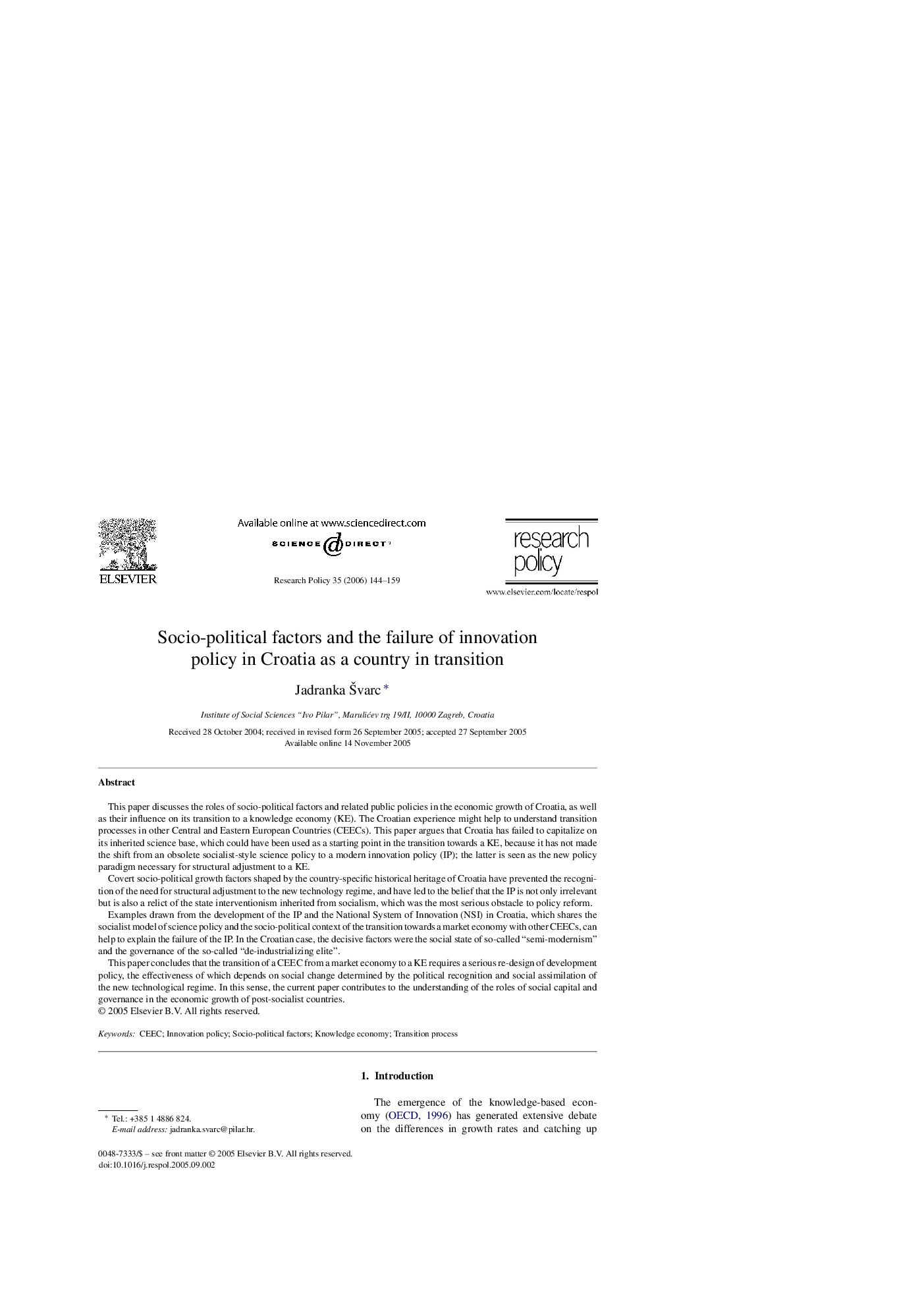| کد مقاله | کد نشریه | سال انتشار | مقاله انگلیسی | نسخه تمام متن |
|---|---|---|---|---|
| 985014 | 934404 | 2006 | 16 صفحه PDF | دانلود رایگان |

This paper discusses the roles of socio-political factors and related public policies in the economic growth of Croatia, as well as their influence on its transition to a knowledge economy (KE). The Croatian experience might help to understand transition processes in other Central and Eastern European Countries (CEECs). This paper argues that Croatia has failed to capitalize on its inherited science base, which could have been used as a starting point in the transition towards a KE, because it has not made the shift from an obsolete socialist-style science policy to a modern innovation policy (IP); the latter is seen as the new policy paradigm necessary for structural adjustment to a KE.Covert socio-political growth factors shaped by the country-specific historical heritage of Croatia have prevented the recognition of the need for structural adjustment to the new technology regime, and have led to the belief that the IP is not only irrelevant but is also a relict of the state interventionism inherited from socialism, which was the most serious obstacle to policy reform.Examples drawn from the development of the IP and the National System of Innovation (NSI) in Croatia, which shares the socialist model of science policy and the socio-political context of the transition towards a market economy with other CEECs, can help to explain the failure of the IP. In the Croatian case, the decisive factors were the social state of so-called “semi-modernism” and the governance of the so-called “de-industrializing elite”.This paper concludes that the transition of a CEEC from a market economy to a KE requires a serious re-design of development policy, the effectiveness of which depends on social change determined by the political recognition and social assimilation of the new technological regime. In this sense, the current paper contributes to the understanding of the roles of social capital and governance in the economic growth of post-socialist countries.
Journal: Research Policy - Volume 35, Issue 1, February 2006, Pages 144–159